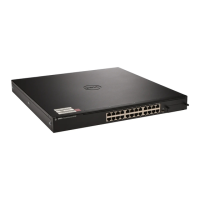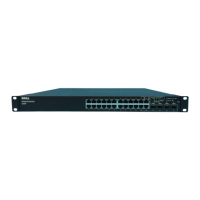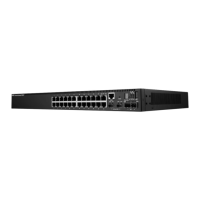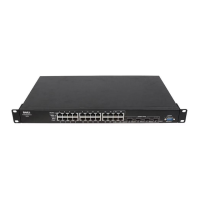Sflow Commands 1009
68
Sflow Commands
This chapter explains the following commands:
• sflow destination
• sflow polling
• sflow polling (Interface Mode)
•sflow sampling
•sflow sampling (Interface Mode)
• show sflow agent
• show sflow destination
• show sflow polling
• show sflow sampling
sflow destination
Use the sflow destination command to configure the sFlow collector parameters (owner string,
receiver timeout, maxdatagram, ip address and port). Use the “no” form of this command to set
receiver parameters to the default or remove a receiver.
Syntax
sflow
rcvr_index
destination {
ip-address
[
port
] | maxdatagram
size
| owner
“owner_string”
timeout
rcvr_timeout
}
no sflow receiver
rcvr_index
destination {
ip-address
| maxdatagram | owner }
•
rcvr_index
—The index of this sFlow Receiver (Range: 1–8).
•
ip-address
—The sFlow receiver IP address. If set to 0.0.0.0, no sFlow datagrams will be sent.
•
size
—The maximum number of data bytes that can be sent in a single sample datagram.
The management entity should set this value to avoid fragmentation of the sFlow datagrams.
(Range: 200–9116 bytes).
•
owner_string
—The identity string for the receiver, the entity making use of this
sFlowRcvrTable entry. The default is an empty string. The empty string indicates that the
entry is currently unclaimed and the receiver configuration is reset to the default values. An
entity wishing to claim an sFlowRcvrTable entry must ensure that the entry is unclaimed
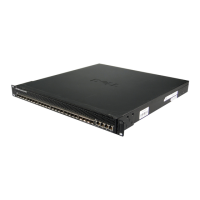
